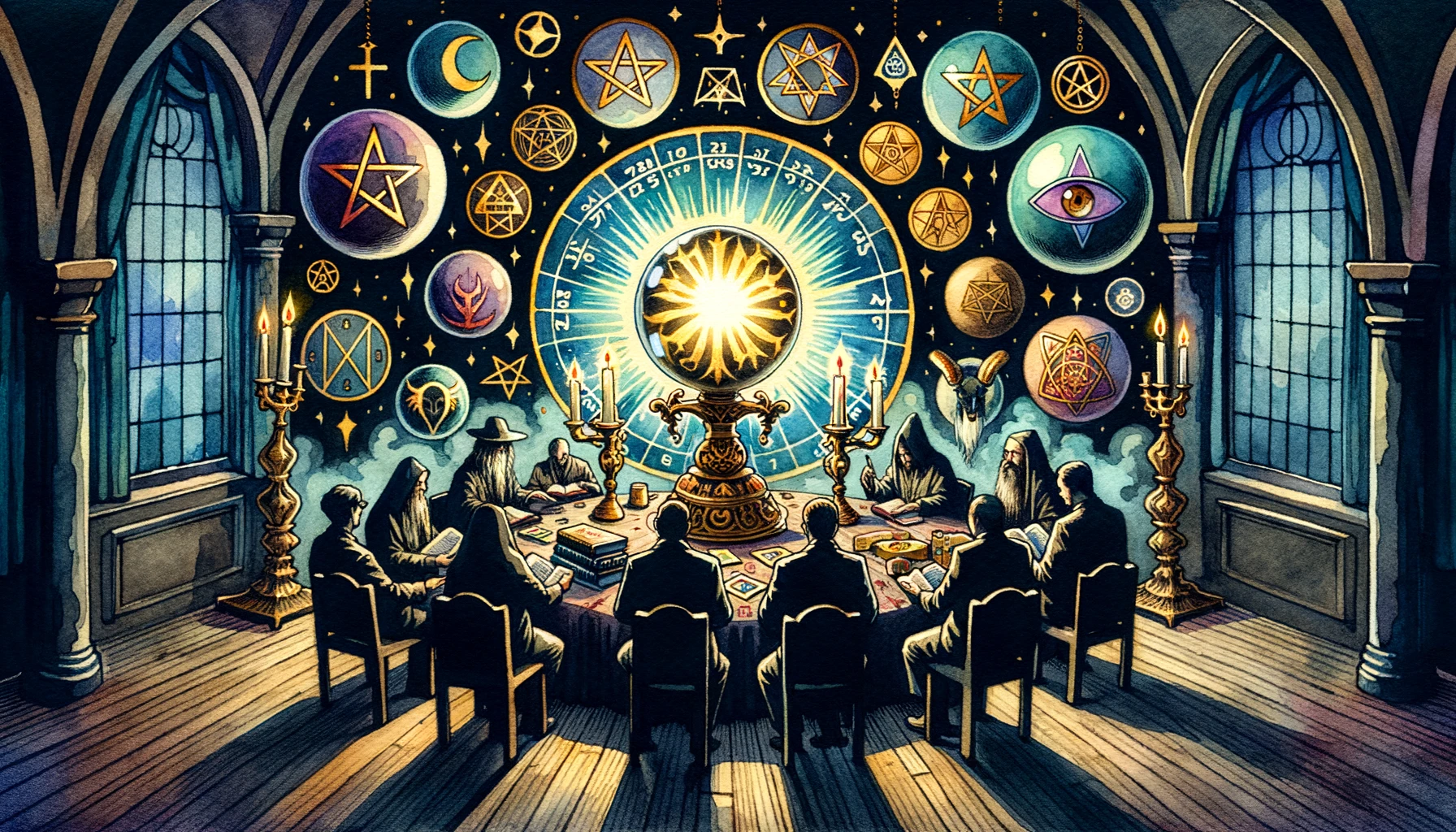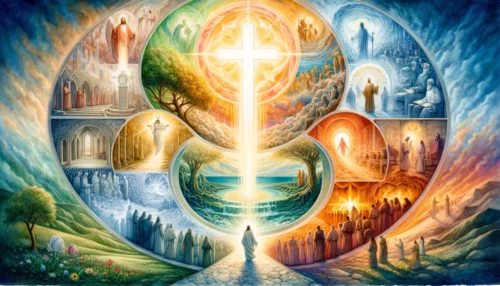In an era where spiritual and mystical practices are increasingly common, it becomes essential to discern what aligns with biblical teachings and what veers towards the occult. While the Bible instructs us to stay away from occult practices, it does not always define clearly what these practices entail, hence the need for clear recognition and understanding. This article, therefore, seeks to explore the subtle signs of occult practices, helping us to guard against them and stay true to our faith.
Biblical Warnings Against the Occult
A keen look at the Bible reveals stern warnings against occult practices. In the Old Testament, God expressed His clear stance on these activities, advising His people, the Israelites, to steer clear of them. For instance, a prohibition is put forth in Deuteronomy against divination, sorcery, interpreting omens, witchcraft, casting spells, consulting with spirits, and seeking oracles from the dead (Deuteronomy 18:10-12).
The cautionary advice against such practices indicates God’s understanding of the spiritual dangers they pose. These practices open doors to spiritual realms that are not of God, potentially leading us astray from the truth of the Gospel. Occult practices are seen as detestable to God and contrary to His character, as they rely on other spiritual sources rather than trusting in Him.
God warns the Israelites of the potential dangers they might face in their journey towards the Promised Land. Among these was the temptation to follow the spiritual practices of the nations they would encounter, practices that often included aspects of the occult (Leviticus 19:31). We are encouraged to be wary of these practices to protect our relationship with God.
In the New Testament, the Apostle Paul underscores the same warning to the early church. He calls upon the faithful to put on the whole armor of God to stand against the wiles of the devil, which can come in many forms, including occult practices (Ephesians 6:11-12). The essence of this armor is truth, righteousness, readiness of the gospel, faith, salvation, and the word of God.
The book of Acts recounts an interesting story where Paul, through the power of God, drives out a spirit of divination from a slave girl (Acts 16:16-18). This action underscores the stance of the New Testament against the occult, demonstrating that the power of God is superior to these practices and can free those who have been ensnared by them.
The Bible also reveals that not all spiritual powers or phenomena are from God. The Apostle John, for example, urges us to test the spirits to determine whether they are from God (1 John 4:1). This instruction is given in the context of discerning false prophets, but it applies to the wider range of spiritual experiences that we might encounter, including those linked to the occult.
The Bible sends clear warnings against occult practices. Both the Old and New Testaments caution believers about these practices and their potential spiritual dangers. God warns the Israelites against engaging in such activities, and this warning extends to us as well. The New Testament continues to highlight the need for discernment and protection against the occult, urging believers to put on the whole armor of God and to test the spirits to see if they are from God. The Bible promotes reliance on God and His power over any other spiritual sources.
Recognizing the Signs of Occult Practices
One key sign often associated with the occult is divination. Divination involves seeking knowledge or guidance from supernatural sources, something discouraged in Proverbs (Proverbs 3:5-6). Occult practices often place a heavy emphasis on the power of the individual and personal enlightenment, which contrasts with the Christian faith’s focus on the sovereignty and authority of God. This is often demonstrated in the practice of witchcraft, where the aim is to control spiritual forces for personal gain. Such an approach is inconsistent with the teachings in the Bible, which promote submission to God’s will and reliance on His providence (James 4:7).
Another sign of the occult is an excessive preoccupation with the supernatural, especially in ways not in line with the Bible. This can include fascination with ghosts, spirits, or the dead. Communicating with spirits, necromancy, is explicitly warned against in Deuteronomy (Deuteronomy 18:11).
The use of symbols, rituals, and artifacts that have no basis in the Bible can indicate occult practices. These might include pentagrams, crystal balls, tarot cards, or runes, none of which find endorsement in the Christian faith. Instead, our faith calls us to worship in spirit and truth, not through symbolic rituals not ordained by God (John 4:24).
Occult practices also frequently involve secrecy or the promise of hidden knowledge. This stands in stark contrast to the openness of the Christian faith, where the message of the Gospel is proclaimed publicly and accessible to all. The Apostle Paul spoke of the Gospel as being a mystery now revealed, not kept hidden (Colossians 1:26).
Recognizing the signs of occult practices involves discerning activities that go beyond biblical teachings. Divination, an excessive focus on the supernatural, the use of non-biblical symbols and artifacts, and the promise of hidden knowledge are all indicative signs. These practices contrast with Christian teachings, which advocate reliance on God’s providence, submission to His will, and open access to the Gospel. Understanding these signs helps believers to maintain the integrity of their faith.
Responding to Occult Influences
Recognising the signs of occult practices is the first step, but what comes next is equally crucial. Responding to these influences is essential in safeguarding our Christian faith.
An important response to the recognition of occult practices is rejecting and avoiding them. Rather than seeking to explore or understand these practices out of curiosity, we are guided to refrain from them. The teachings in James encourage us to resist the devil, and he will flee from us (James 4:7).
Being informed about the Bible’s stance on these practices helps us maintain vigilance. Equipping ourselves with the knowledge of God’s Word can serve as a defense. In Ephesians, we are told to put on the whole armor of God to stand against the wiles of the devil, which includes the belt of truth and the sword of the Spirit, which is the Word of God (Ephesians 6:14, 17).
Prayer is another crucial aspect in responding to occult influences. Engaging in a consistent prayer life deepens our relationship with God and strengthens us spiritually. In Philippians, we are instructed to make our requests known to God through prayer and supplication, ensuring that our spiritual needs are met through Him and not other spiritual sources (Philippians 4:6).
We are also encouraged to fellowship with other believers. A community of faith can provide support and encouragement, helping us to remain strong in our spiritual walk. As it is written in Hebrews, we should not neglect to gather together, as is the habit of some, but we should encourage one another, especially as we see the day of the Lord drawing near (Hebrews 10:25).
Responding to occult influences involves rejecting these practices, being informed about God’s Word, engaging in prayer, and maintaining fellowship with other believers. These actions safeguard our Christian faith and protect us from spiritual harm. By doing this, we uphold the truth of the Gospel, deepen our relationship with God, and encourage one another in our walk of faith.
Standing Firm in the Face of Occult Practices
The recognition and response to occult practices can be a challenging task, yet it is integral in maintaining the integrity of our Christian faith. Equipped with the discerning light of God’s Word, we can identify these practices, comprehend their dangers, and consequently, respond in ways that protect and uphold our faith.
- What steps can you take to strengthen your knowledge of God’s Word as a defense against occult influences?
- How can consistent prayer help you in resisting the temptation of the occult?
- How can fellowship with other believers aid in standing firm against these practices?
Let us remember, our faith is our shield and strength, not to be replaced or overshadowed by any form of occult practice. May we stand firm, guided by the unfailing truth of the Gospel, as we uphold the sovereignty and authority of God in our lives.














